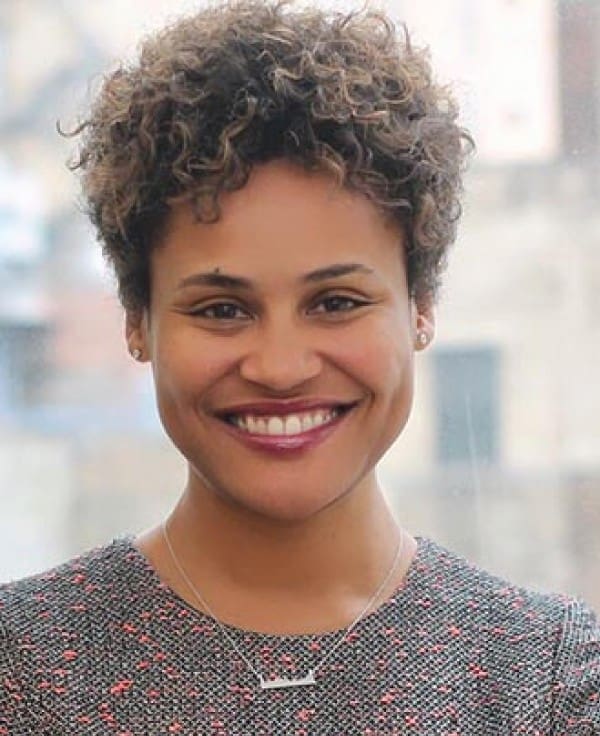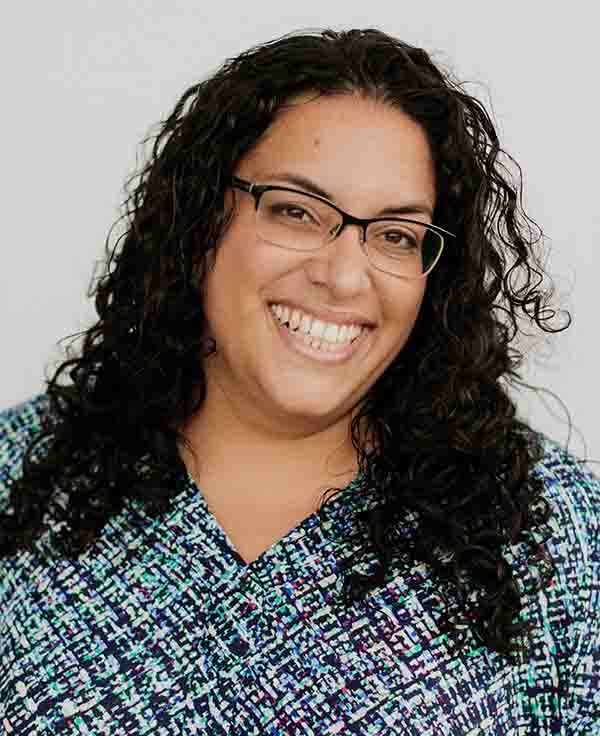By mid-June of 2020, more than 21 million Americans participated in mass Black Lives Matter protests across the country in response to murders of Black people at the hands of police — including George Floyd, Michael Brown, Breonna Taylor, Rayshard Brooks, Tony McDade, and so many others — making this moment of racial reckoning the largest protest movement in the country’s history.
Ongoing and repeated instances of racial violence, now caught on camera and shared in real time via social media, lay bare the longstanding fundamental truth of institutionalized racism in the United States: Public institutions fail People of Color and other historically marginalized groups, and worse, often enact violence on them.
As the collective consciousness of the masses began to catch up with realities that many of us have known all too well for a lifetime, corporations, non-profits, and school systems put out statements to demonstrate that they cared about diversity, inclusion, equity, and antiracism. Some created new working groups, launched DEI and antiracism initiatives, or hired a Chief Diversity, Equity, and Inclusion Officer (CDO). This instinct — to pull discrete, technical levers in an effort to effect meaningful adaptive organizational change — is very common.
At Promise54, I am asked at least weekly by organizational leaders structures they should create. E.g. “Should we create a DEI working group?” “Should we create affinity groups?” “Should we hire a Chief Diversity Officer?” But discrete, technical levers are not enough to create a more diverse, inclusive, equitable, and antiracist organization.
Even the creation of a CDO role is not – in and of itself – necessarily a solution. In fact, according to our report, Unrealized Impact 2.0: The Hard Truth About Where We Are and Ways to Move Forward, organizations with this role did not consistently report more positive DEI experiences among staff nor did the creation of the role without the conditions for its success produce a difference in staff experiences of bias or intent to stay at the organization.
The question isn’t whether to hire a CDO, in fact, it’s not whether you implement any individual solution that matters most, it’s how you implement any of them.
The CDO role is most successful when the structure of the role (and the person in the role) adds and enforces diverse, inclusive, equitable, and antiracist elements throughout the organization and is positioned to provide strong, sustained levels of support and accountability.
At Noble, we hired our first Chief Equity Officer, Jennifer Davis, in June 2020, after spending a year forming a Diversity Equity and Inclusion (DEI) Steering Committee, hearing their recommendations, and launching a search for the position. Diversity, Equity, and Inclusion had been a core value at Noble for several years, and we believed that a leader would help us to demonstrate and advance our collective commitment to living out our beliefs on DEI.
In her introductory letter to the Noble community, Jennifer reinforced that the creation of the CEqO role marked the continuation of a substantial organizational history of work toward DEI and antiracism, which connects deeply and fully to our organization’s core mission, and will continue to require all of us to act in honest and bold ways to interrupt past patterns and collectively create a new future: “We at Noble must recognize the significance of the times we are in and continue to evolve for the better. We must work towards anti-racism as a model of being, and not a timely buzz word. Anti-racism means we must do righteous work for our children and families. We must continue to hammer away at our own racist practices & policies, hold ourselves accountable, make urgent and bold changes, and lead with values that are quickly followed by actions. There is no shortcut to freedom. Noble must lead from the front for academic results and educational equity. I am expecting these things from Noble because I know we can do it. And, I look forward to doing this work alongside brilliant people, students, and families. This work is collective and requires us all.” – Jennifer Davis, Noble Network CEqO
So, if you’re considering hiring for a CDO-type position, here are some questions you should consider:
- Hiring: Who will be engaged in the hiring process and how? What are you looking to accomplish when hiring for this position? What will this person be responsible for? What experiences, skills, and attributes will best position an ideal candidate for success?
- Authority and agency: Will your organization’s CDO have a meaningful level of influence, autonomy, agency, and decision-making power? Will they have enough resources available to them to be effective in advancing the work and holding others accountable?
- Organization-wide commitment: Does your organization have an existing (written) commitment to DEI and antiracism that is embedded up and down and throughout your organization? Is leadership invested in the creation of this position? Will there continue to be a shared responsibility for DEI and antiracism across the organization? And how will that look or shift with the creation of this position?
If you aren’t clear on the answers to these questions, keep reading.
To get to transformational change, organizations should focus on implementing comprehensive changes so that DEI and antiracist principles are embedded in every dimension of the organization. Creating a CDO position can be one critical strategy to help reach this end state. If you believe it could be within your organizational context and can set the role up for success then yes, hire a CDO, but also:
- Move past random acts of DEI: Don’t treat DEI as a stand-alone initiative, separate from your overall organizational strategy. When done that way, the work tends to become disjointed, siloed, and typically under-resourced. To effectively embed DEI in your organization, articulate what DEI means to your organization, be clear on what you mean by key terms such as “racial justice” or “antiracism” and which specific actions your staff is committing to. Then invest the necessary resources (financial, capacity, training, etc.) to enable staff to implement those actions and live out those beliefs.
- Write DEI strategies and policies down: We’ve found that organizations with a formal, written DEI policy that all staff can easily access are more likely to land in the “Advanced” category in our survey (i.e. organizations that exhibit more advanced staff perceptions of staff diversity, inclusion, and equity). A well-documented plan ensures that everyone is clear on how the organization expects to move toward progress.
- Focus simultaneously on the “I,” the “E”, and the “D”: Many organizations focus on diversity first, believing that inclusion and equity will follow. These principles are mutually reinforcing and our data illustrates that focusing on all three principles of DEI at once is more likely to support positive DEI experiences.
At the onset of hiring our CEqO, I also made the commitment that Noble would become an antiracist organization – with our newly formed equity team leading that work. Along with the DEI Steering Committee, our Noble Equity Team listened to thousands of students, families, staff, alumni, and members of the community to develop our Commitment to Anti-Racism, or what we affectionately call our ARC. Our ARC has driven all the work we’ve done throughout the organization since its creation last year – including cross-functional teams that have developed news workstreams that have led to some exciting changes. For example, with the clarity of our ARC, and the investment of our entire organization, we were able to replace a 22-year-old student code of conduct with a new Noble Community Pact – our vision for how we can operate schools as an antiracist organization, centering restorative practices.
The benefits of becoming a more diverse, equitable, and inclusive organization are clear, and our data shows that more positive DEI staff experiences lead to greater staff satisfaction and higher likelihood of retention. Until we interrupt white supremacy and replace it with diverse, inclusive, equitable, and antiracist practices, we cannot deliver on our social-justice missions.
CONSTANCE (CJ) JONES
Chief Executive Officer - Noble Schools
She/Her/Hers
In November 2018, Constance Jones became the chief executive officer of the Noble Network of Charter Schools, Illinois’ largest charter school network, and is the first African American and first female to hold that position. Connected through community groups and board positions across Chicago, she quickly became a widely influential and trusted voice within the nation's third largest school district.
As Noble’s CEO, she oversees the strategy, operations, and academic results of an organization of over 12,500 students and 1,400 staff across 18 campuses, with a total budget in excess of $187 million. Nationally renowned for preparing its students—98% students of color and 89% from under-resourced communities—to be accepted to and graduate from college, Noble represents 12% of all CPS high schoolers. Under Constance’s leadership, Noble continues to set the high-water mark for college preparation across the city’s public schools, ultimately contributing to a significant portion of the success that CPS has publicly claimed in recent years.
Constance previously served as Noble's chief external affairs officer and president, where she spearheaded a campaign that resulted in Noble winning the Broad Foundation’s national prize for best charter school in 2015. She continues to stand out as a coalition leader and advocate for high-quality public schools of all types, with her leadership resulting in Noble’s continued growth to serve more CPS students, the passage of crucial education funding reform in Springfield in 2017, and Noble’s Class of 2020 graduating 2,500 seniors, 97% of whom were accepted into college while earning a record-breaking $500 million in scholarships.
Constance is an alumna of Leadership Greater Chicago, the IMPACT Leadership Development Program with the Chicago Urban League and The University of Chicago, and the Aspen Institute Pahara Fellowship. Constance has an MBA from Harvard Business School and a bachelor of science in business administration from The University of North Carolina at Chapel Hill. In May 2020, Constance was named one of Chicago Magazine’s 50 Most Powerful Women, and was chosen to be in the Crain’s 40 Under 40 class in 2019. Constance is the founder of a scholarship at North Carolina Central University for first-generation math and science majors in honor of her late father.
XIOMARA PADAMSEE
Founder & Chief Executive Officer
She/Her/Hers
Contact Xiomara: xiomara@promise54.org


